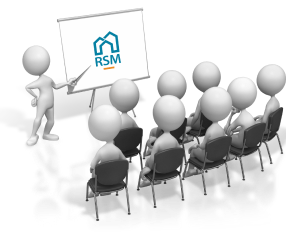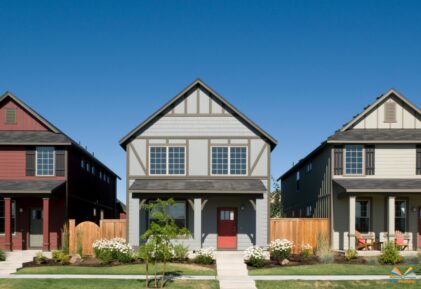
Secondary Suites in Houses - 2024 OBC
Course
Renovations don’t always follow a neat path—and neither does the Code. This one-day workshop is built specifically for those working with existing buildings in Ontario, offering practical, step-by-step guidance on how to apply Part 11 of the OBC with confidence.
Designed for building officials, designers, and engineers, the course focuses on the real-world challenges of working with renovation projects, mixed-scope work, and unclear compliance expectations. You’ll learn how to classify buildings, evaluate performance levels, apply compensating construction, and navigate compliance alternatives when traditional Code paths fall short.
Whether you're new to Part 11 or looking to refine your approach, this session will give you the tools to make clear, consistent, and defensible decisions for renovation projects—no guesswork required.
Sorry, there are no courses posted at this time.
What you'll learn:
- Identify when Part 11 applies and distinguish it from other compliance options
- Navigate the full structure and flow of Part 11
- Classify existing buildings and proposed work accurately
- Determine performance level impacts and apply compensating construction
- Analyze projects with multiple occupancies or mixed-scope renovations
- Use compliance alternatives appropriately and defensibly
- Make consistent, code-based decisions—especially when projects don’t fit a neat category
Who this course is designed for:
Building Officials and Plans Examiners
Engineers and Architects
BCIN-Qualified Designers
Duration: 6 instructional hours + 1-hour lunch break
Delivery: Live in-person OR virtual via Microsoft Teams
Includes: Instructor-led training, quizzes, group case study, and downloadable resources

Module 1: Introduction to Part 11
Clarifies scope, purpose, and how Part 11 fits into the overall OBC compliance structure.
Module 2: Classification of Existing Buildings
Step-by-step classification including construction and hazard indexes.
Module 3: Proposed Construction + Performance Level
How various renovation types trigger different obligations—and when compensating construction applies.
Module 4: Compliance Alternatives
A deep dive into Subsection 11.5, including documentation and application strategies.
Wrap-Up: Case Study and Group Discussion
Apply everything you've learned through a complex, real-world case study.
We deliver every training session live in a hybrid format. If you cannot attend in person, join us online via Microsoft Teams. Online participants still get to join in on the discussions and interact with other members. You can get the full training experience from your home or office when we use our Meeting Owl camera. With this approach to hybrid collaboration, you will see the full 360 degree view of the training room and be able to participate with the group live in real time.
All participants will have the ability to download all of the course material, including the presentation, activities and quizzes, for two weeks after the course date.
There are no prerequisites for this course. It is our intention to design the course in a way that benefits participants of all experience levels. In fact, we find that the best discussions often happen when a course has a wide range of experience levels between participants.
Related Courses

Course

Description
This workshop, updated with changes from the 2024 OBC, is directed towards plans examiners and building inspectors to further their understanding in the methods of compliance for constructing a secondary unit in existing homes, both over 5 years old and less than 5 years old.
Specific topics discussed will be the application of Part 10 and 11 to secondary suites, compliance alternatives for egress, fire separations and recent building code changes for buildings less than 5 years old. Discussion will take place on the hazard index tables, construction index, early warning and evacuation tables and compliance alternatives. The participant will be able to confidently apply the building code requirements through interactive discussion, examples and activities. A resource manual is included which will provide the participant with a helpful guide to use on the job.
Instructor

Course

Description
The 2024 Ontario Building Code becomes effective on January 1st, 2025, and contains thousands of changes from previous versions. This comprehensive course simplifies the changes as they relate to small buildings, focusing on Part 9 and related updates to other Parts.
In an interactive group setting, participants will be introduced to the changes, one topic at a time. Topics covered include changes to fire safety, egress and exiting, soil gas control, Part 9 structural, HVAC, and more. Practical activities will be included to reinforce understanding of the subject matter, and a digital copy of the course workbook will be provided for future reference.
Stay up to date with the code changes to small buildings and register today!
Instructor

info@rsmbuildingconsultants.com
519.496.1434
44 Saltsman Dr, Unit 9 Cambridge, ON N3H 4R7